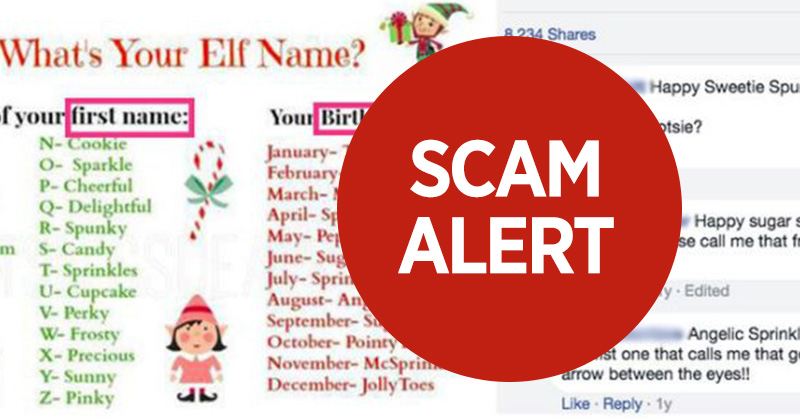Over a billion people on planet Earth use Facebook. It’s by far the most popular social network by the number of users it has. As is expected, not everyone on Facebook means good.
There are a lot of hackers and cybercriminals who use Facebook and other social media platforms as their hunting ground. For this reason, a lot of things you come across on your newsfeed are not all they seem to be.
Scammers can steal your identity
It’s always fun and exciting taking one of those random quizzes that pop up on your timeline as you’re scrolling through Facebook. This has been dubbed a very dangerous act and should be avoided at all cost, lest you make yourself a victim of identity theft.
Following a series of unfortunate events in the area, the Sutton Police Department of Massachusetts issued a warning to all Facebook users, home and abroad, to be extra careful of the activities they engage in on Facebook. You don’t know the person behind any of the quizzes or questionnaires, and you could be inadvertently revealing your private information and history to scammers.
In a Facebook post that has garnered over 200K shares, the Sutton Police Department wrote, “Please beware of some of the posts you comment on. These questionable posts ask who was your first-grade teacher, who was your childhood best friend, what was your first car, your place of birth, your favorite place, your first pet, where did you go on your first flight, etc.
Those are the same questions asked when setting up accounts as security questions. You are giving out the answers to your security questions without realizing it.” A lot of people have now started reporting posts and pages that seem fishy and crooked.
You can never be too careful
Let’s take a look at an example of how these wolves in sheep’s clothing can try to pull their stunts off. During the Yuletide, a game pops up on most people’s feed titled What’s your elf name? A lot of people fall for this seemingly innocent game, because really, what’s the harm in playing to find out the name of your spirit elf.

Sometimes, the person who created the post has no malicious intentions in mind. Cybercriminals could easily override whatever algorithm that’s protecting the information you must have given out, and that’s it. You end up sharing so much in-depth information about yourself, not knowing you’re putting yourself at a considerable risk.
Chief Technologist for the Good Housekeeping Institute had reiterated the police’s warnings. “A nugget of information in isolation may not seem like a big deal, but combining that with other data out there can result in a more significant threat.
Be mindful of photos or posts that could give away too much information and consider if you’re posting something that could help locate you offline or make it easier for someone to figure out any of your passwords.”
People should keep their private information private, no matter their security settings on Facebook. Scammers can collect your personal information and use it to create a fake identity or a profile, thereby landing you in major trouble when you least expect it.
Sources
- Darren Reynolds. 2017, December 20. Answering social media questionnaires could help ID thieves. – Police. Retrieved from www.abcnews.go.com
